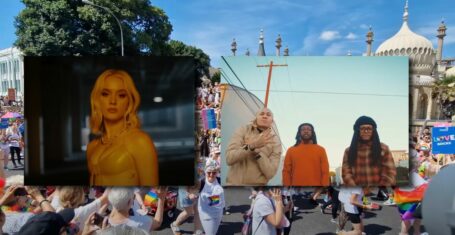
The attorneys from Making a Murderer gave an exclusive talk at Sussex yesterday
They spoke to students about the series and the US criminal justice system
On the 30th January, Dean Strang and Jerry Buting, who were Steven Avery’s defence attorneys in the popular Netflix series ‘Making a Murderer’, came to Sussex University for an exclusive ‘conversation’ with students.
Making a Murderer is a ten-part series following the trial of Steven Avery, who was found guilty for murder. The series also follows his nephew, Brendan Dassey, and his involvement in the crime. The series captured a global audience as parts of the trail and conviction appeared flawed.
Both Steven Avery and Brendan Dassey are still in prison after Dassey’s bail was denied, despite several reports “confirming” Dassey had been released from his charges.
On entry, students were offered the chance to write down questions for the public defenders to answer.
Dean and Jerry spoke about something that is often overlooked, which is how little of the full story is actually shown in the series. Dean Strang highlighted that the trial went on for five weeks and 150 hours was spent in court . This was then edited down to three and a half hours of screen time.
He then continued to say that even though there were parts of the trial he would have liked to have seen in the series, mainly being the evidence talked about by the forensics, he believed the filmmakers had made “fair and reasonable” decisions with the material they had included.
When asked about the way the media covered the case, Jerry spoke about the sensationalisation of the story used by the press. The US media industry is driven by profit and outlets say what they can say to generate sales. “Murder is hot” said Jerry, so when the special prosecutor in Brendan Dassey’s case gave a dramatic, graphic account of what supposedly happened the night Teresa Halbach was murdered, the press repeated this version of events.
False confessions, like the one Dassey gave, are common in the US. Both Dean and Jerry confirming this occurs “hundreds of times a day, every day”. This is due to the ‘false friend’ and ‘good cop, bad cop’ interview techniques that are used by US law enforcement officers. It is known as the Reid technique and involves isolating a victim and repeatedly accusing them of being guilty as well as fabricating non-existent evidence against them; often using the key phrase “we already know the truth, we just need to hear it from you”.
Brendan Dassey played a controversial role in Steven Avery’s trial
Dean said that the technique is based on “antiquated behavioural studies” and it is only used in America as the rest of the world has progressed to more accurate techniques. These techniques used together often produce false confessions with 20-25% of suspects falsely confessing and young, vulnerable and cognitively limited people, such as Dassey, are particularly susceptible.
The legitimacy of Dassey’s statement was not disputed in the series but Dean and Jerry said in the talk that Milwaukee Federal Court ruled that the statement showed evidence of being involuntary, unethical and coerced and therefore should never have been used as prosecution evidence.
Despite false confessions being regular in the US justice system, the attorneys pointed out that an unusual aspect of Dassey’s case is his own defence lawyer standing against him and refusing to believe his innocence. Len Kachinsky has since been accused of misconduct but Dean mentioned it was surprising how some people involved in the case acted despite knowing they were being filmed. Dean said that the filming of the series actually affected his and Jerry’s part in the case “either not at all or imperceptibly”.
The conversation closed on a point that is very poignant at the moment. A question about racism within the US justice system. Dean said:
“Racial disparities are undeniable, nothing to do with statistics, they are undeniable”
He went to add that it is driven by the socio-economics in society as most crimes in America are committed by people on or below the poverty line.
Dean continued:
“I think our criminal justice system picks on poverty with people of colour, lower class, and minority religious backgrounds being more likely to commit crimes and more likely to be victims of crimes because they live and work in the areas where crime is rife.”
Jerry and Dean both agreed that if people are worried about injustice, it needs to be sorted in primary school. Keeping young children in school and preventing them as much as possible from entering poverty and a life of crime. As Dean said, “justice is your problem and my problem”
Jerry said that Steven Avery’s case and the subsequent series has been an awakening for white Americans that people like them can commit crimes and be victims of the criminal justice system. He also said that Avery’s race might be a part of the success of the programme – if he was black it is more than probable that his case would not have been picked up by the filmmakers, the series may not have been bought by Netflix and may not have been watched internationally.
To end, a single comment from Jerry shined light on the American Justice System which was: “If he were black, no one would have heard of Steven Avery”.









































